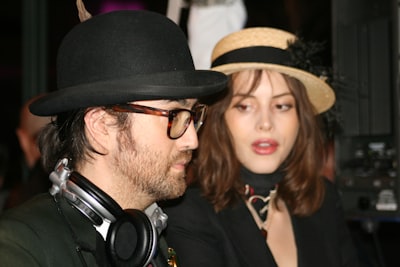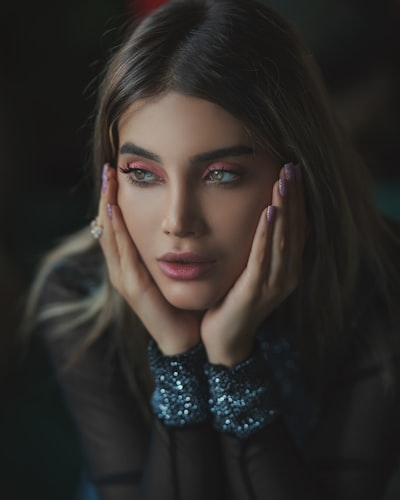Celebrities with Trichotillomania: A Revealing Exploration
Key Highlights
-
Trichotillomania is a hair-pulling disorder that affects people from all walks of life, including celebrities.
Celebrities like Megan Fox, Justin Timberlake, Amy Schumer, Katy Perry, and Olivia Munn have publicly shared their experiences with trichotillomania.
-
Trichotillomania is often accompanied by stress and can have a significant impact a person's mental health.
-
Understanding trichotillomania and raising awareness about the disorder is essential to destigmatize it and support those who are affected.
-
Treatment and management options for trichotillomania, such as cognitive-behavioral therapy and support systems, can help individuals cope with the disorder and improve their quality of life.
-
Inspiring stories of recovery and hope from celebrities who have overcome trichotillomania serve as a source of encouragement for others struggling with the disorder.
Introduction
Hair pulling is a compulsive disorder that affects millions of people worldwide, regardless of their age, gender, or social status. This disorder, known as trichotillomania, is characterized by the irresistible urge to pull out one's hair, including eyelashes and pubic hair in the pubic area, leading to noticeable hair loss and bald patches. While trichotillomania can be challenging for anyone who experiences it, the added pressure of fame and public scrutiny can exacerbate the stress and anxiety associated with this disorder for celebrities.
In this blog, we will explore the stories of several well-known celebrities who have bravely shared their battle with trichotillomania. By shedding light on their experiences, these celebrities have helped raise awareness about this often misunderstood disorder and break the stigma surrounding it. Their stories serve as a reminder that trichotillomania can affect anyone, regardless of their success or public image.
Through their openness, these celebrities have given hope to others struggling with trichotillomania and inspired a conversation about mental health, self-acceptance, and the importance of support systems. Join us as we delve into their journeys, understand trichotillomania, explore the stigma surrounding the disorder, and learn about treatment and management options. Let's uncover the hidden stories of fame tangled with the stress of trichotillomania.
If you or a loved one are struggling with hair loss from trichotillomania, our team at Noelle Salon offers compassionate solutions. Learn more about our Trichotillomania & Hair Loss services designed to restore confidence and provide personalized support.
Celebrities and Their Battle with Trichotillomania
Trichotillomania does not discriminate, and even celebrities are not immune to its effects. Over the years, several well-known individuals have come forward to share their struggles with this hair-pulling disorder. Their stories highlight the challenges they have faced and the strength they have found in overcoming the condition. From renowned actresses like Megan Fox to music icons like Justin Timberlake, these celebrities' experiences shed light on the daily battles they have fought and the impact trichotillomania, and its compulsion, has had on their lives.
1. The Hidden Struggle of a Renowned Actress
One celebrity who has openly discussed her battle with trichotillomania is Megan Fox. The actress revealed that she has been dealing with the disorder since childhood, specifically her inability to use silverware in publicly shared spaces. In an interview, she shared that she used to wear hair extensions to cover up the bald spots caused by her hair pulling. Megan's openness about her trichotillomania has helped raise awareness and break the silence surrounding the disorder. Her courage in sharing her story shows the importance of destigmatizing trichotillomania and providing support for those who are affected. In a world heavily influenced by social media and beauty standards, Megan's openness has been a valuable contribution to the conversation around mental health and self-acceptance.
2. A Music Icon’s Journey with Hair-Pulling Disorder
Justin Timberlake is another celebrity who has spoken about his experience with trichotillomania. The music icon has shared that he has struggled with impulse control disorder for years. Justin has revealed that he often pulls out his own hair and that it has caused him much shame. Despite this, he has managed to maintain a positive outlook and embrace his natural hair. Justin's journey with trichotillomania serves as a reminder that the disorder does not define a person and that self-acceptance is crucial in overcoming the challenges it presents.
3. From the Sports Arena to Trichotillomania
Trichotillomania is not limited to the world of entertainment; it can affect athletes as well. Some sports icons have shared their battles with the disorder and how it has impacted their lives. Hair loss caused by trichotillomania is a common struggle for these individuals. However, with the help of personal support systems and professional interventions like cognitive-behavioral therapy, they have been able to manage their condition. By opening up about their experiences, these athletes have raised awareness about the mental health challenges faced by individuals in the sports arena and highlighted the importance of seeking help and support.
4. A Comedian’s Tale of Overcoming Stress and Hair Pulling
Amy Schumer, a well-known comedian and actress, has also shared her journey with trichotillomania. In interviews, she has discussed her struggles with hair pulling and the impact it has had on her life. Amy's transparency about her disorder was particularly evident in her Hulu series, Life & Beth, where she portrayed her own experience with trichotillomania in a poignant storyline. By bringing this often hidden struggle to the forefront, Amy has helped raise awareness and foster understanding about the challenges faced by individuals with trichotillomania. Her openness has created a space for others to share their stories and find support.
5. On-Screen Star Shares Their Coping Mechanisms for Trichotillomania
Olivia Munn, a prominent actress and activist, has spoken about her experience with trichotillomania and the coping mechanisms she has developed. In an interview with the Hollywood Reporter, Olivia discussed her journey with the disorder and the importance of seeking professional help. She highlighted the role of cognitive-behavioral therapy in managing trichotillomania and reducing the stigma associated with it. Olivia's willingness to share her coping strategies has provided a source of inspiration for others struggling with the disorder. Her story serves as a reminder that there are ways to manage trichotillomania and thrive despite its challenges.
Understanding Trichotillomania
Trichotillomania, often referred to as hair-pulling disorder or compulsive hair pulling, is a mental disorder and health condition characterized by the repetitive urge to pull out one's hair. It can affect any hair on the body, not just scalp hair. It is a complex disorder that can have a significant impact on a person's mental health and overall well-being. Understanding trichotillomania is essential to support those affected by the disorder and breaking the stigma surrounding it. By gaining insight into the causes, symptoms, and treatment options for trichotillomania, we can create a more compassionate and inclusive society for individuals dealing with this condition.
What is Trichotillomania and Who Does it Affect?
Trichotillomania is a hair-pulling disorder characterized by the repetitive pulling out of one's hair, resulting in noticeable hair loss. According to the Mayo Clinic and Massachusetts General Hospital, as well as the American Psychiatric Association's Diagnostic and Statistical Manual of Mental Disorders, Fifth Edition, the disorder affects approximately 1-2 in 50 people during their lifetime. However, due to the lack of awareness and the stigma surrounding the chronic condition, the actual prevalence of trichotillomania may be higher, possibly leading to co-occurring psychiatric conditions such as anxiety disorder, especially in times of a stressful situation. Trichotillomania can affect individuals of all ages and backgrounds, and it is essential to recognize and support those who are suffering from this often hidden disorder, which can border on addiction.
The Psychological Impact of Trichotillomania on Individuals
Trichotillomania can have a profound psychological impact on individuals. The noticeable hair loss, including the potential for permanent loss of hair caused by the disorder, can lead to feelings of embarrassment and self-consciousness, resulting in a great deal of emotional distress. Bald patches and thinning hair can affect a person's self-esteem and confidence, potentially impacting their overall mental health, and may also have negative effects on interpersonal relationships. Some individuals might also wear false eyelashes to enhance their appearance. The severity of trichotillomania varies from person to person, with some individuals experiencing mild symptoms and others struggling with more severe hair-pulling tendencies that can also affect their digestive tract. Understanding the psychological impact of trichotillomania, also known as trich, is crucial in providing support and promoting empathy for those living with the disorder.
The Stigma Surrounding Trichotillomania
Trichotillomania is not only challenging to live with but is also often misunderstood and stigmatized by society. The lack of awareness and misconceptions surrounding the disorder, which is a form of mental illness, can lead to judgment and isolation for those affected. This stigma can prevent individuals from seeking help and support, further exacerbating the challenges they face. Breaking down the myths and misconceptions about hair-pulling disorders and raising awareness about trichotillomania are essential steps toward creating a more supportive and understanding environment for those living with the condition.
Breaking Down Myths About Hair Pulling Disorders
There are many myths and misconceptions surrounding hair-pulling disorders like trichotillomania, which can lead to tissue damage and, in some cases, permanent hair loss of follicles. One common misconception is that individuals can simply stop pulling out their hair if they wanted to. However, the urge to pull is often uncontrollable and not a matter of choice. Trichotillomania, also known as dermatillomania, is also often associated with skin picking and other body-focused repetitive behaviors, and a punch biopsy may be necessary for diagnosis. These misconceptions contribute to the stigma surrounding hair-pulling disorders and can prevent individuals from seeking the help and support they need. By breaking down these myths and promoting understanding, we can create a more empathetic society for those affected by trichotillomania.
How Society’s Perception Affects Those Suffering from Trichotillomania
Society's perception of trichotillomania can have a significant impact on those living with the disorder, often causing significant distress. The lack of awareness and understanding can lead to judgment and discrimination, making it difficult for individuals with trichotillomania to feel accepted and supported. Comments and reactions from third parties, whether in person or on social media platforms like Twitter and Facebook, can further contribute to feelings of shame and isolation. By increasing awareness and promoting empathy, we can create a more inclusive environment that supports individuals with trichotillomania and encourages open conversations about mental health.
Treatment and Management
Treatment and management options for trichotillomania, including habit reversal training, are crucial in helping individuals cope with the disorder and improve their quality of life. While there is no cure for trichotillomania, various interventions, including acceptance and commitment therapy techniques for trichotillomania, as well as treatment of trichotillomania, can help individuals manage their symptoms and reduce hair-pulling tendencies. Cognitive-behavioral therapy, antidepressant medications, and innovative treatments specifically designed for body-focused repetitive behaviors are among the options available. These treatments aim to address the underlying triggers and provide individuals with tools to better manage their urges and behaviors.
Also Read: Best Hair Growth Products for Trichotillomania
Innovative Treatments for Managing Trichotillomania
Cognitive-behavioral therapy (CBT), a type of cognitive behavioral therapy, is a widely recognized treatment for trichotillomania. It focuses on identifying and modifying the thoughts and behaviors that contribute to hair pulling tendencies. CBT, along with other innovative treatments such as habit reversal therapy and body-focused repetitive behavior therapy, helps individuals develop healthier coping mechanisms and provides support in managing stress and anxiety, common triggers for trichotillomania. In some cases, selective serotonin reuptake inhibitors, or SSRIs, may be prescribed along with antidepressant medications to help regulate mood and reduce the urge to pull. These innovative treatments offer new strategies for self-control and behavior modification, providing hope for those struggling with trichotillomania.
Celebrities’ Role in Raising Awareness and Supporting Research
Celebrities who have shared their stories of trichotillomania play a vital role in raising awareness about the disorder and supporting research efforts. Their candidness helps destigmatize trichotillomania and encourages open conversations about mental health. Celebrities like Katy Perry and Amy Schumer have used their platforms and social media presence to raise awareness and offer support to those affected by trichotillomania. By sharing their experiences, they have created a sense of community and provided resources for individuals seeking help and understanding. Their involvement and support contribute to ongoing research and advocacy efforts aimed at improving the lives of those living with trichotillomania.
Inspiring Stories of Recovery and Hope
Recovery from trichotillomania is possible, and many celebrities have shared their inspiring stories of overcoming the disorder. Leonardo DiCaprio, Katy Perry, and others have demonstrated that with the right support and treatment, individuals can regain control over their hair-pulling tendencies and lead fulfilling lives. These success stories offer hope to those currently struggling with trichotillomania, showing that recovery is achievable and that they are not alone in their journey. The power of support systems, both personal and professional, plays a crucial role in the recovery process and provides individuals with the strength and encouragement they need.
Success Stories: Celebrities Who Have Overcome Trichotillomania
Leonardo DiCaprio and Katy Perry are two notable celebrities who have shared their triumph over trichotillomania. Leonardo's journey of managing his OCD, which includes trichotillomania, highlights the importance of finding effective strategies to cope with the disorder. Katy Perry's journey is a testament to the power of self-acceptance and seeking professional help. Their stories of recovery and hope inspire others to persevere and seek the necessary support to overcome trichotillomania. By sharing their experiences, these celebrities provide encouragement and demonstrate that a fulfilling life is possible beyond the challenges of trichotillomania.
The Power of Support Systems in Recovery
Support systems play a crucial role in the journey to recovery from trichotillomania. Personal and professional support, including therapy and peer groups, provide individuals with the understanding, encouragement, and guidance needed to navigate the challenges of the disorder. Social media platforms have also become a valuable resource for individuals with trichotillomania to connect with others, share experiences, and access support networks. These support systems empower individuals to seek help, explore treatment options, and find solace in knowing that they are not alone in their journey. By fostering a sense of community, support systems contribute to recovery and promote overall mental health and well-being.
Conclusion
In conclusion, the stories of celebrities battling Trichotillomania shed light on the hidden struggles and stigmas surrounding this disorder. Understanding Trichotillomania's psychological impact is crucial for breaking myths and offering support. Innovative treatments and support systems play a pivotal role in managing and overcoming this condition. By sharing inspiring stories of recovery and raising awareness, celebrities contribute significantly to supporting research and combating societal misconceptions. Let's extend empathy and understanding to those dealing with Trichotillomania, fostering a compassionate environment for recovery and hope.
Frequently Asked Questions
What Triggers Trichotillomania in Celebrities?
Trichotillomania can be triggered by various factors in celebrities' lives, including stress, family conflict, the pressure of fame, scrutiny from the public, and the constant presence of social media. These factors may be linked to the cause of trichotillomania and can exacerbate the hair-pulling tendencies associated with the disorder.
Can Trichotillomania be Cured?
While trichotillomania cannot be completely cured, it can be effectively managed with the help of treatments like cognitive-behavioral therapy. With the right treatment and management strategies, individuals can significantly reduce their hair-pulling tendencies and improve their quality of life. The prognosis for trichotillomania varies from person to person, but recovery and symptom reduction are possible.
How Can Fans Support Celebrities with Trichotillomania?
Fans can support celebrities dealing with trichotillomania by offering understanding, empathy, and respect. It is important to create a safe and supportive environment, both online and offline. Respect their privacy and recognize that trichotillomania is a deeply personal struggle that requires compassion and support.
Are There Any Specific Therapies Recommended for Trichotillomania?
Cognitive-behavioral therapy (CBT) is considered one of the most effective therapies for trichotillomania. Working with a trained clinical psychologist who specializes in trichotillomania can provide individuals with the necessary tools to manage the disorder. Innovative treatments specifically designed for body-focused repetitive behaviors (BFRBs) are also emerging as effective options for trichotillomania therapy.








